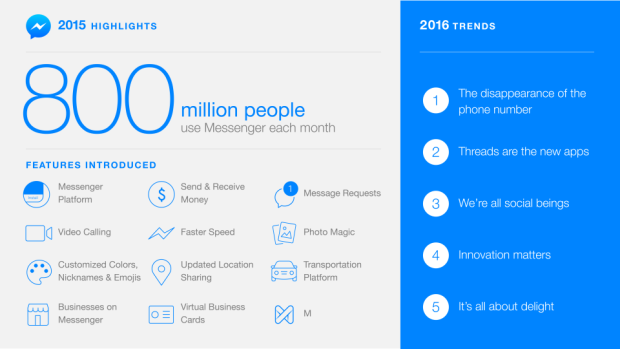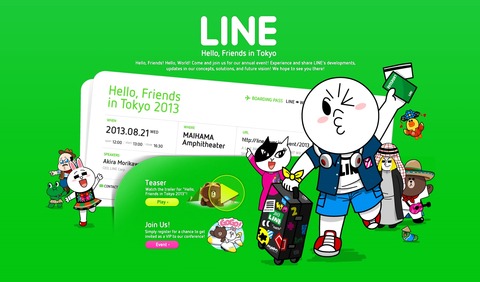With the popularity in usage of OTT apps such as Facebook Messenger, phone numbers will eventually disappear in the near future, according to Facebook’s Vice President of Messaging Products David Marcus. This forecast has to do with how communication is evolving among consumers who rely on connected mobile devices such as smartphones to accomplish a lot of tasks beyond calls and text messaging.
“Think about it: SMS and texting came to the fore in the time of flip phones. Now, many of us can do so much more on our phones; we went from just making phone calls and sending basic text-only messages to having computers in our pockets. And just like the flip phone is disappearing, old communication styles are disappearing too,” he said.
“With Messenger, we offer all the things that made texting so popular, but also so much more. Yes, you can send text messages, but you can also send stickers, photos, videos, voice clips, GIFs, your location, and money to people. You can make video and voice calls while at the same time not needing to know someone’s phone number. You don’t need to have a Facebook account to use Messenger anymore, and it’s also a cross platform experience – so you can pick up where you left off whether you’re on a desktop computer, a tablet, or your phone.”
Launched in 2011, Messenger has become the second most popular iOS app of all time behind Facebook. It was named the fastest growing app of 2015, with 800 million people using the app each month.
Last year, Facebook introduced improvements to the Messenger. Users can now engage in video calls or customize conversations with color, nicknames and emojis, among many other things.
“We rolled out the ability to send and receive money to friends right from conversations, launched Messenger Platform for expression apps, and updated the way you can choose to share your location. We added helpful information at the top of new conversations so you always have the context of who you’re talking to if it’s not a Facebook friend, and with Message Requests, we built the foundational step of enabling you to find and talk to anyone. We also made photo sharing with friends easier than ever with our new feature Photo Magic.”
Messenger is also testing “M” — a virtual assistant as well as launched a transformation platform with with Uber.
For 2016, Messenger is looking at introducing more services and experiences, particularly along the lines of e commerce.
“We’re seeing a paradigm shift in how people engage. At Messenger we’re thinking about how we can help you interact with businesses or services to buy items (and then buy more again), order rides, purchase airline tickets, and talk to customer service in truly frictionless and delightful ways. It is so much easier to do everything in one place that has the context of your last interactions, as well as your identity – no need to ever login – rather than downloading apps that you’ll never use again and jumping around from one app to another.”
“Our early tests in 2015 with brands are showing that interactions will happen more and more in your Messenger threads, so we’ll continue making it easy for you to engage with businesses, and we’ll also do more to enable additional businesses and services to build the right experience in conversations.”
Source: http://newsroom.fb.com/news/2016/01/heres-to-2016-with-messenger/









